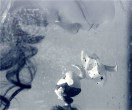
网上购物的优势与劣势英语作文【一】
What our life will be like in the future?When I was a little boy,I always asked myself this question.At that time,I had no idea what Internet was.But now,we use it every day.We can't live without it.Internet is become so popular and so convenient.
Just forget it.What our life will be like in the future?For example,in ten years.I think that in ten years our life will be much more colorful,our computer will be much powerful,and we can do almost everything on the internet including seeing a doctor.What about your future life ?Will you share with me?
网上购物的优势与劣势英语作文【二】
在深海中生活的寄居蟹,偶然间发现龙虾正在褪去坚硬的外壳,十分不解的问:“硬壳是你唯一的优势,你把它褪去了,不是自寻路吗?”龙虾却告诉它,只有放弃这现有的优势,努力生出更坚硬的外壳,才能生存下去。
我们也是一样的,只有正确对待现有的优势,才有成功的可能,否则,优势反而是我们最大的绊脚石。
拥有了优势不等于拥有了成功的砝码。因为假如你只是倚仗现有的优势,不知努力,最终只能是把曾经的优势也都失去了。
审读中国近代史上的衰落,我们不仅扼腕哀叹曾经的东方大国,拥有着当时最先进的政治制度,创造了令人叹为观止的文化,缔造着天朝上国的神化。然而近代这颗璀璨的明星渐渐陨落了。面对西方的坚船利炮,仍然抱残守旧,以“天朝”自居,抱着老祖宗的“四大发明”固步自封,渐渐与时代脱节。曾经的先进,成了今日阻碍进步的根源,当时的中国,在世界上拥有着绝对的优势,可正是这份优势,蒙住了巨龙的双眼,使它安于在卧榻之中沉睡了近五百年。试想,如果当时中国能把握住自己的优势,细心的走好每一步,想必那百年的屈辱史便将改写了。
“你是一个没有雨伞的孩子,下雨天,别人可以撑伞慢慢走,而你必须跑。”我想那些“有伞”的人看了这句话一定有许多感慨。当我们安然地撑着伞在雨中漫步时,那些没有伞的人早已冲到了“阳光地带”。癌症患者用食指在凄风苦雨中发出了热爱生命的绝唱;《假如给我三天光明》的海伦凯勒让一切健康却虚度光明的人感到惭愧;在地坛中摇着轮椅的史铁生让梦想成为现实,这些没有雨伞的人,让我们拿着所谓的雨伞,目睹了自己的狼狈,拥有优势的我们,因为失去了一种危机感,而失去了前进的动力,与成功失之交臂。
拥有优势,会让我们搏击长空的翅膀更加坚韧;拥有优势,会让我们航行大海的帆船更加稳健;拥有优势,会让我们离成功更进一步。但记住,这一切都是在我们认真对待优势的前提之下。
认真对待优势,细心地走好每一步,在下雨天时,我们才会真正的安然无恙。
网上购物的优势与劣势英语作文【三】
Children's finally here, it is our holiday, but imagine the children also accompanied by together, everybody is more excited.
Children on this day, white clouds float over the blue sky, the children also have made a hot air balloon, they sit together on yourself a hot-air balloon, extremely happy! Balloon flying high, and finally flew to the sky, the children are in the sky holiday, the children sit on clouds, umpa jump, like a frisky little monkey.
Playing children, suddenly to rain cats and dogs, the children of the balloon has stalled, baiyun sister swept away by the wind, the children fell into despair. Is a time of crisis, a group of dragonflies sister and sister flew caught the children, and the safety of the children to the ground.
On the ground, only butterflies woven into a rainbow "lei", the children wear a wreath, some like a fairy, some like a warrior.
Play tired, the children fell asleep between full of fragrance of flowers.
Children's good play my imagination, to one day be able to live in such a children's day.
网上购物的优势与劣势英语作文【四】
(一)改写一般疑问句:
(1)原句中有be动词的,将be动词提前,其他顺序不变。
例如:Thisisacat.变为Isthisacat?
(2)原句中有情态动词的(can/may/shall/would)将情态动词提前,其他顺序不变。例如:Hewouldlikeapie.变为Wouldhelikeapie?
(3)原句中是一般动词的,在句首加助动词do或dose(用于主语是第三人称动词单数的句子),其他顺序不变。例如:Iplaytheguitar.变为Doyouplaytheguitar.
(4)原句中的some变any。
注:以情态动词开头的一般疑问句,并且要求对方做肯定回答的`some不变。
(5)原句中的第一人称改为第二人称。例如:Iamanurse.变为Areyouanurse?
(6)以dose开头的一般疑问句,原来动词的第三人称单数形式要变回原形。例如:Hereadsastorybook.变为Dosehereadastorybook?
(二)改写否定句:
(1)原句中有be动词的,直接在be动词后面加not。例如:Itisadog.→It’snotadog./Itisn’tadog.
(2)原句中有情态动词的,直接在情态动词后加not。
例如:Iwouldlikeahotdog.→Iwouldnotlikeahotdog.
(3)原句中是一般动词的,在一般动词前加don’t或doesn’t(用于主语是第三人称单数的句子),doesn’t后面用原型。例如:Iseethreehamburgers.→Idon’tseethreehamburgers.
原句中的some变any例如:Ihavesomebreadan
dmilk.→Idon’thaveanybreadandmilk.
(4)以let开头的祈使句,如果是letus或letme,直接在其后加not;如果let后面其他人称代词宾格(you、him、her、them、it)就在let后面加助动词don’t。例如:Letusgotothepark.→Letusnotgotothepark.再如:Letthemdohomework.→Don’tletthemdohomework.
(三)对划线部分提问:
对划线部分提问,就是先把一个陈述句的划线部分去掉,然后变为一个特殊疑问句:一是特殊疑问句+一般疑问句;
二是特殊疑问句+陈述句(对主语或主语的定语提问,therebe结构除外)
⑴划线部分是人,用who提问。
⑴划线部分是主语,用who提问,who后面的动词要用第三人称单数形式。如:Whois;Wholikes;Whohas?
方法:who+原句的剩余部分
例如:①HelenandMikearelisteningtomusic.
→Whoislisteningtomusic?
②Ihavesomemodelplanes.
→Whohasanymodelplanes?
⑵划线部分是表语,用who提问。
方法:Who+剩余部分的一般疑问句形式
⑵划线部分是事或者物,用what提问。
方法:what+剩余部分的一般疑问句形式。
注:如果原句是therebe句型,直接用What’s+地点状语来提问。例如:①Wewouldliketobuysomethingsforaparty.
→Whatwouldyouliketobuyforaparty?
②Therearealotofcakesintheplate.
→Whatisintheplate?
⑶划线部分是物主代词或名词所有格,用Whose提问。
方法:⑴划线部分是主语的定语时,Whose+剩余部分
例如:Ourclassroomisbright.
→Whoseclassroomisbright?
⑵划线部分是表语或表语的定语时,Whose+剩余部分的一般疑问句形式例如:①ThewomanisSuYang’steacher.
→Whoseteacheristhewoman?
注:对某部分的定语提问,被修饰的部分跟随特殊疑问句往前提②ThispurseisYangLing’s.
→Whosepurseisthis?
⑷划线部分是地点,用where提问。
方法:where+剩余部分的一般疑问句形式
例如:TheyarehamingaMathslessonintheclassroom..
→WherearetheyhavingaMathslesson?
⑸划线部分是“多少”,用howmany或howmuch提问。
方法:⑴句中是可数名词的用Howmany+剩余部分的一般疑问句形式例如:Therearefifteentreesintheplayground.
→Howmanytreesarethereintheplayground?
⑵句中是不可数名词的用Howmuch+剩余部分的一般疑问句形式例如:Ihaveaglassofjuiceforbreakfast.
→Howmuchjuicedoyouhaveforbreakfast?
⑹划线部分是时间,用when或whattime(具体的几时几分)提问。方法:⑴when+剩余部分的一般疑问句形式
例如:SuYangandSuHaiareathomeonSundaymorning.
→WhenareSuYangandSuHaiathome?
⑵问具体的时间直接用Whattimeisit?或What’sthetime?问
例如:It’sthreeforty-five.
→Whattimeisit?或What’sthetime?



















